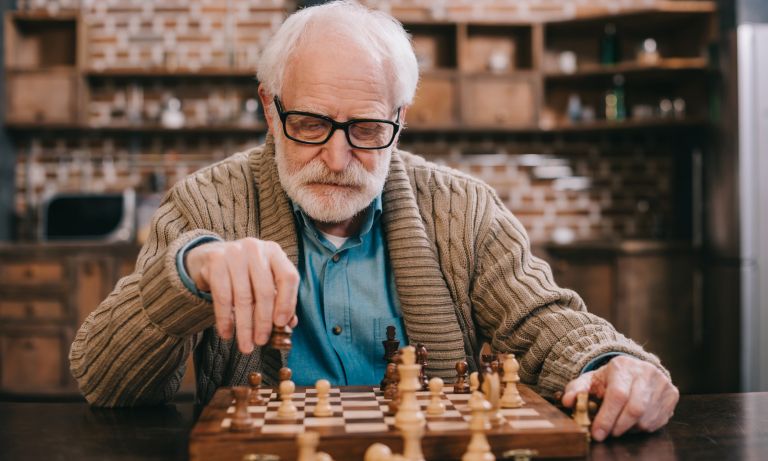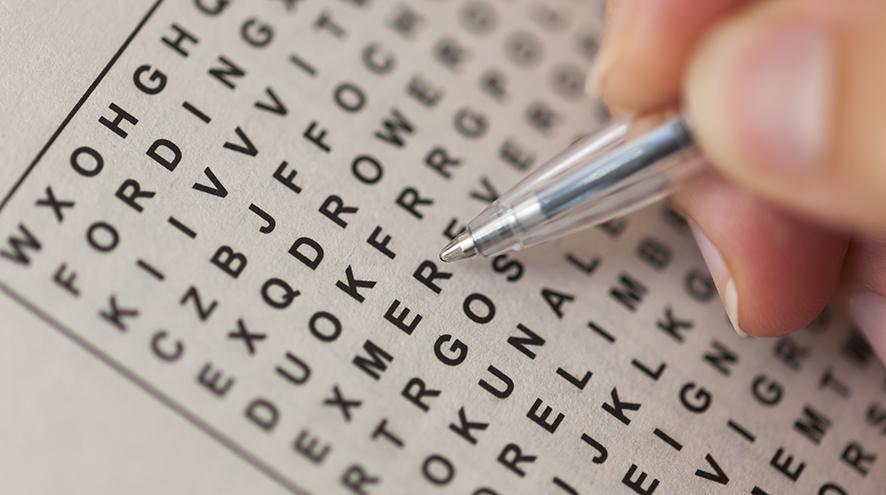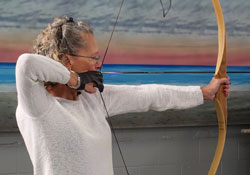Expanding Life Interests to Challenge the Aging Brain
"'Use it or lose it' is not just a hypothesis, it's a basic biologic[al] fact that holds as true for our brains as our muscles or our bones.""[While the loss of muscle is a visual thing and the health of our skeleton can be measured with bone density scans], it is only recently that we were aware the same reality was evident in our brains."David Merrill, adult and geriatric psychiatrist, director, Pacific Brain Health Center, Santa Monica, California"The fact is that there are many positive cognitive changes in older age and there are many techniques to support lifelong learning. Older persons can benefit from the same memory strategies that young persons use to improve recall.""In fact, our brains experience new growth of neurons in response to challenges throughout the lifespan."Becca Levy, professor of psychology and epidemiology, Yale University

"Imagine on retirement you decide to take up dancing lessons. [Ultimately] you're not just benefiting from the cognitive challenge -- learning new steps -- you're also likely more socially engaged and more active. And because you're more active, you may think about your diet, so before you know it, you've embraced a number of important lifestyle changes.":Having a plan is critically important. How am I going to keep busy, stay engaged, remain active?"Monica Moreno, senior director, care and support, Alzheimer's Association
In the United States alone, an estimated 5.8 million adults over age 65 live with Alzheimer's disease or another type of dementia disorder, according to the Centers for Disease Control and Prevention. The Alzheimer's Association places the number as one in nine Americans over 65 having Alzheimer's. A situation that may be undergoing a slow change as more people focus on elder lifestyle changes, incorporating renewed interests in activities new to them that in the process activate exercise in both mind and body for a healthier outcome.
 |
Interests to be developed with a focus on exerting oneself both mentally and physically. The goal is to achieve better health, and to stave off the effects of a wasting body and brain, declining with age. Like any other part of the human body, brains need stimulation and use. There are no guarantees in the prevention of dementia, and there is as yet no cure for the condition. In 2020 the medical journal Lancet identified a dozen potential risk factors open to modification that could lead to or forestall the condition.
- Physiological (blood pressure, diabetes, hearing loss);
- Lifestyle choices (smoking, drinking, physical inactivity);
- Environmental (air pollution);
- Depression;
- Social Isolation;
- Lower level of education.
 |
Focus on challenging our brains through tackling difficult tasks; cognitive weightlifting requiring flexible mental tasking and strength. Taking the brain in a new direction to understand and perform in a commitment to learn a new discipline, such as another language is prime exercise for the brain. When we're young our sense of curiosity leads us to learning new things, an enterprise that lags as we grow older and begin to slow down, tending toward the sedentary and the damping of interests.
There is also the issue of: you are what you think you are. If you are resigned to being 'old' because you think that's the condition you've slid into, considering that it is appropriate to no longer be active or to bother yourself over intellectual pursuits, your perception of what you are will guide you to behave in a like manner, settling for agedness and becoming decrepit, susceptible to impaired health and body breakdown. Think old, become 'old' a self-fulfilling prophecy.
 |
"Based on a large scientific literature, our general sentiment is that it is never too early or too late to engage in physically and mentally stimulating activities.""We think of these healthy activities as a savings account for the brain.""Begin building that cognitive reserve now, so the money is in the bank for down the road if our brains need it."Judy Pa, co-director, Alzheimer's Disease Cooperative Study, University of California, San Diego
Labels: Aging, Alzheimer's Mental Fitness, Brain challenges, Dementia, Disease Prevention, Healthy Lifestyles, Physical Fitness

0 Comments:
Post a Comment
<< Home